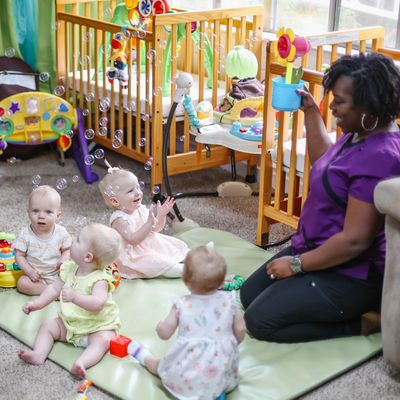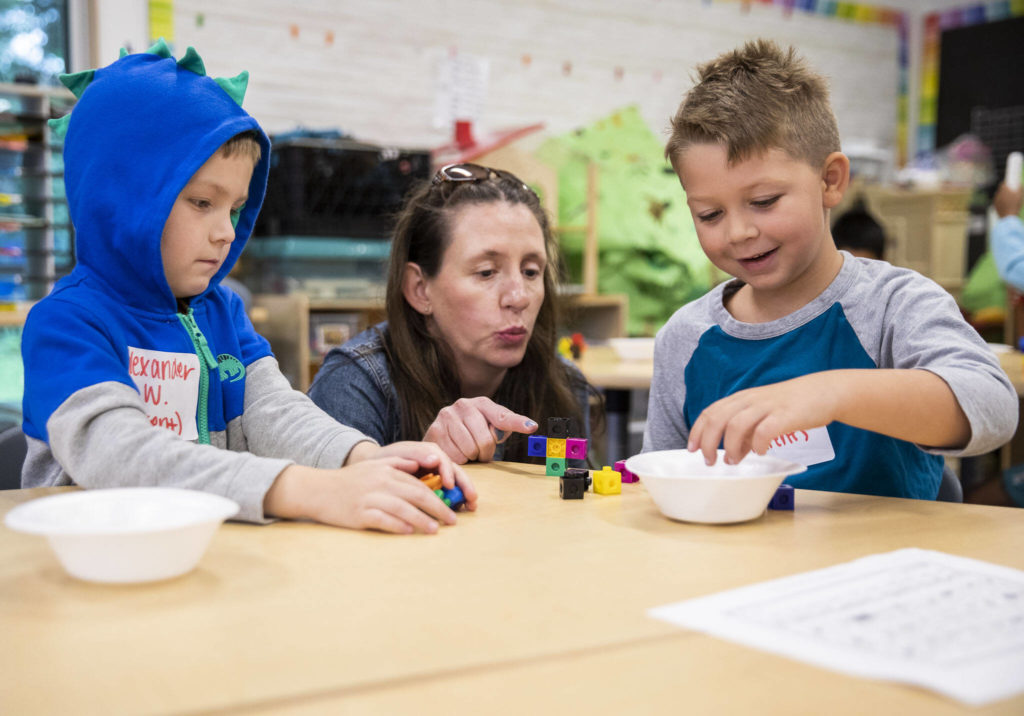Understanding Grade Institution: Secret Realities and Exciting Activities for Every Student
Elementary school serves as a crucial structure for trainees, blending scholastic understanding with the advancement of social skills. This duration is vital for cultivating psychological knowledge and resilience. Involving activities can boost inquisitiveness and motivation, however the difficulty hinges on discovering the right balance. As teachers and parents browse this landscape, comprehending the complex nature of grade school comes to be vital. What methods can successfully support students in this transformative phase?
The Significance of Social Abilities in Grade College
Academic knowledge is crucial, social abilities play an important role in quality college advancement. Throughout these developmental years, youngsters find out to interact with their peers, negotiate disputes, and develop friendships. Social skills encompass a series of competencies, consisting of efficient communication, compassion, and teamwork. These abilities make it possible for students to navigate the intricacies of social characteristics within the class and beyond.
As kids participate in group activities and joint tasks, they create critical interpersonal skills that add to their emotional intelligence. This fundamental knowledge cultivates a sense of belonging and improves total wellness. Moreover, youngsters that possess solid social abilities tend to experience far better scholastic outcomes, as they are a lot more likely to take part actively in conversations and look for assistance when needed.

Basically, the cultivation of social abilities throughout elementary school is not just useful yet essential for fostering an all-around individual prepared for future challenges.
Balancing Academics and Creativity
As students proceed with quality institution, stabilizing academics with creative thinking ends up being vital to their overall growth. This equilibrium cultivates important reasoning, analytic, and development, abilities essential for future success. Academic topics give fundamental knowledge, while innovative tasks urge trainees to reveal themselves and check out brand-new concepts.
Integrating imagination right into the educational program can boost engagement and motivation, allowing students to link with the product on a deeper level (Grade School). Jobs that blend topics, such as art and science, can boost interest and promote a love for discovering
Moreover, innovative outlets like music, dramatization, and visual arts aid students develop psychological intelligence and durability. These experiences add to a well-rounded education, preparing pupils for a swiftly altering world.
Ultimately, prioritizing both academics and creativity gears up pupils with a diverse capability, allowing them to browse challenges and seize opportunities properly throughout their educational trip and past.
Engaging Activities to Boost Learning
Numerous appealing activities can substantially improve learning experiences for elementary school students. These tasks not just make finding out satisfying but likewise help strengthen vital principles. For circumstances, hands-on experiments in science courses allow students to discover concepts virtually, promoting interest and deeper understanding. Interactive narration sessions can boost literacy abilities while triggering creative imagination and creative thinking.
Group projects encourage collaboration, mentor trainees the significance of teamwork and interaction. Including modern technology, such as digital tests and academic games, can additionally astound trainees' interest and make finding out more dynamic. Crafts and arts projects can aid in the advancement of great motor abilities while supplying an innovative electrical outlet.
Additionally, outdoor tasks, like nature strolls or scavenger hunts, attach trainees with the setting and promote physical well-being. By integrating these appealing tasks into the educational program, teachers can develop a boosting understanding atmosphere that satisfies varied learning styles and maintains pupils encouraged.
The Role of Adult Support in Education
Parental support plays a considerable duty in the academic trip of elementary school pupils. Research study shows that when parents proactively participate in their child's education, it favorably influences scholastic performance, motivation, and total wellness. Kindergarten. Consistent participation, whether via research assistance or attending institution events, cultivates a complacency and enhances the worth of education and learning
Additionally, effective communication in between teachers and parents improves the learning experience. Parents that work together with teachers can better understand their youngster's challenges and staminas, enabling for customized support. This collaboration urges accountability and sets high assumptions for trainees.
Additionally, parental attitudes toward education and learning considerably affect children's viewpoints. It grows interest and durability in their youngsters when moms and dads show a favorable outlook on learning. Ultimately, the structure of adult assistance is vital fit pupils' mindsets, actions, and academic success throughout their quality school years.
Developing a Positive Knowing Setting
Developing a positive knowing setting is crucial for promoting scholastic success and emotional well-being among elementary school pupils. Such an environment advertises interaction, encourages cooperation, and improves motivation. Teachers play a significant function in establishing this environment by applying approaches that focus on inclusivity, respect, and assistance.
Class management practices, such as clear expectations and useful responses, are vital in nurturing a sense of safety. In addition, integrating varied teaching methods can deal with different finding out designs, making certain that all trainees really feel valued.
Urging peer interactions and group tasks also grows social abilities and a feeling of neighborhood. Celebrating success, despite how tiny, reinforces favorable behavior and improves self-esteem.
Inevitably, a positive knowing atmosphere not only improves scholastic efficiency but additionally fosters emotional durability, helping pupils thrive both inside and outside the classroom. This structure is substantial for their general advancement and lifelong understanding trip.
Techniques for Creating Critical Believing Abilities
Reliable approaches for developing critical believing skills in grade school consist of encouraging inquiry-based discovering and promoting analytical activities. Inquiry-based knowing cultivates interest and allows students to check out inquiries, while analytical tasks test them to use their knowledge in sensible scenarios. Together, these techniques boost students' capacity to believe critically and individually.
Urging Inquiry-Based Knowing
Just how can instructors cultivate a class setting that advertises inquiry-based discovering? Educators can create an ambience that urges interest by posing open-ended questions and promoting conversations that trigger students to discover different viewpoints. Urging pupils to ask their very own questions can even more stimulate their vital reasoning skills. Including real-world issues and hands-on tasks enables students to engage directly with the material, promoting deeper understanding. In addition, providing opportunities for collaborative projects can boost peer-to-peer understanding, where trainees share insights redirected here and develop on each other's ideas. By integrating innovation and sources that sustain exploration, instructors can help trainees take ownership of their understanding journey, consequently cultivating a frame of mind of inquiry that prolongs beyond the classroom.
Promoting Problem-Solving Activities
While promoting problem-solving tasks in the class, teachers can read the article significantly boost pupils' critical thinking skills. By incorporating hands-on tasks, seminar, and real-world circumstances, educators encourage students to evaluate scenarios, recognize patterns, and explore multiple solutions. Engaging students in collective challenges not just promotes team effort but likewise improves their capacity to verbalize thinking and justify their choices. Additionally, integrating technology through coding simulations or workouts can promote innovative analytical techniques. Evaluating trainees' mind through reflective practices enables deeper understanding and enhancement. In general, promoting analytical activities grows a setting where critical believing flourishes, outfitting students with crucial abilities for future scholastic and life obstacles. These strategies ultimately prepare students to navigate intricate concerns with confidence and innovation.

Frequently Asked Inquiries
What Age Do Children Usually Begin Grade Institution?
Youngsters generally begin grade college at around age 6. This age can differ somewhat depending on regional instructional plans and individual preparedness, but six years old is the most common beginning point for official education and learning.
Exactly How Can I Help My Kid With Homework?
To aid with research, moms and dads can develop an organized setting, establish a routine, urge concerns, give sources, and offer assistance without giving straight answers, promoting freedom and essential reasoning in their kid's knowing process.
What Prevail Elementary School Discovering Obstacles?
Typical elementary school finding out challenges include problems with reading understanding, mathematics principles, attention period, and social skills. These obstacles can impact academic performance and call for tailored assistance to aid students achieve their complete potential.
Just How Can Parents Connect Effectively With Teachers?
Effective communication between teachers and moms and dads can be accomplished via regular updates, open dialogues, arranged conferences, and active listening. Building a collaborative connection cultivates understanding and supports the kid's instructional trip positively.
What After-school Activities Are Readily Available in Grade Institution?
Elementary school generally provide a variety of extracurricular activities, including sports teams, music and art programs, drama clubs, and academic competitions. These tasks improve social skills, foster synergy, and urge imagination among trainees outside the class.

Quality school offers as a crucial structure for pupils, mixing academic discovering with the growth of social abilities. Many interesting tasks can significantly boost discovering experiences for i loved this quality institution students. Developing a favorable knowing atmosphere is necessary for cultivating academic success and emotional well-being amongst grade college students. Inquiry-based understanding cultivates inquisitiveness and enables students to discover inquiries, while analytic tasks challenge them to use their understanding in useful scenarios. While promoting analytic tasks in the classroom, educators can significantly improve trainees' essential thinking skills.